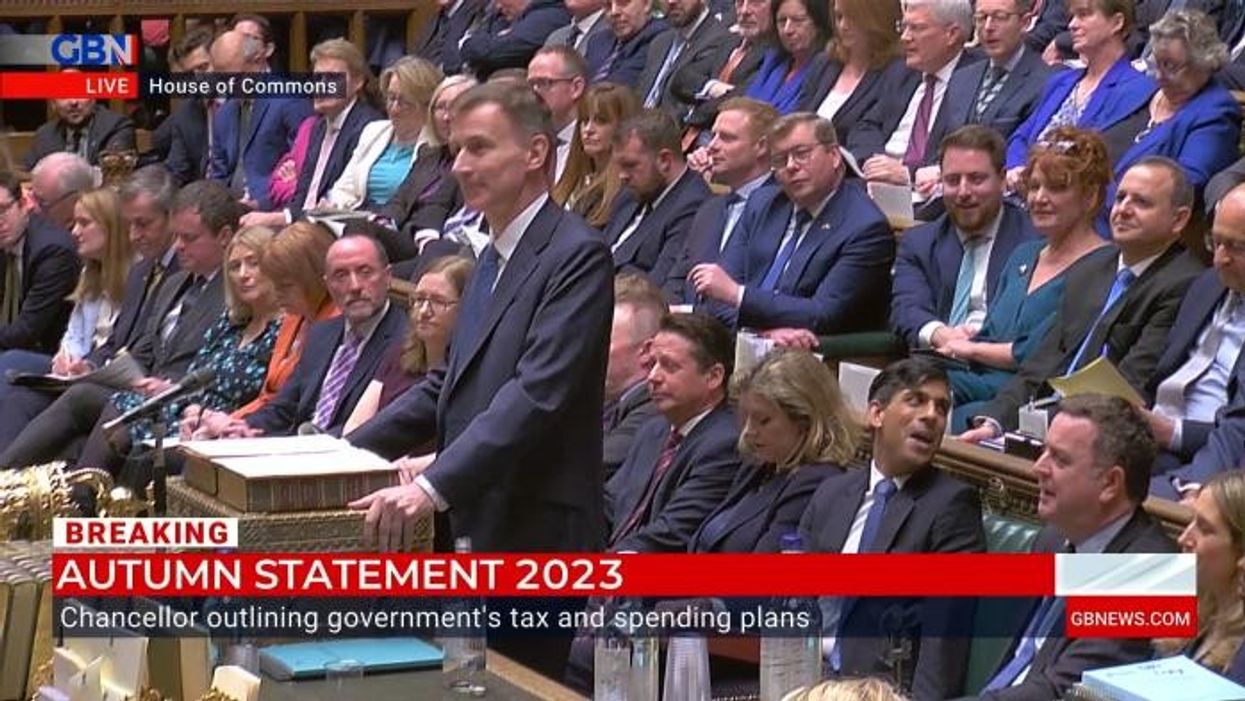State pension age needs to increase to 71 by 2050 to ‘maintain status quo’, ‘alarming’ new report finds
The state pension age is currently set to rise to 68 from 2044
Don't Miss
Most Read
Trending on GB News
The UK state pension age needs to increase to 70 or 71 by 20250 to keep up with longer life expectancy and maintain the number of workers per retiree, a think tank has warned.
The research found the state pension age could need to hit 70+ as early as 2040 to maintain the current ratio if the time spent in full-time education was accounted for, by defining the UK’s working adult population as 20 to 64 years.
A recent stalling in life expectancy during the austerity years and COVID-19 pandemic eased the pressure for increases to the state pension age beyond 67 after 2027, but, in the longer-term, there is pressure to increase it to 68 or 69 before that, the International Longevity Centre (ILC) said.
The report found workers exiting the workforce long before they reach state pension age reduce the funding available to pay for the state pension, with ill health being one of the key reasons for this.

The state pension age has risen to 66 and further changes lie ahead
GETTY
While a solution is to enable people to work for longer, the think-tank warned this is challenging, as research found that by age 70, only 50 per cent of adults are disability-free and able to work.
Becky O’Connor, Director of Public Affairs at PensionBee, said such a dramatic increase to the state pension age was an “alarming prospect”, pointing out people depend on the payment for a “significant chunk” of their retirement income and often provides confidence in people’s ability to retire.
She added: “Even the suggestion that people won’t get it until their 70s will make people feel more distrustful than they already do in the state pension system and may cause actual worry and anxiety about their future.
“If people suffer ill health or face the need to care before 71, as is likely for many, they may have to give up work sooner than they can receive their state pension anyway and have to claim working age benefits for longer instead.”
Nearly half (48 per cent) of UK savers think they will be unable to retire before the UK state pension age, if and when it is raised to 68, as projected between 2044 and 2046, according to PensionBee research.
The survey also indicated the perceived ideal retirement age is 60.
Ms O’Connor said: “The growing disparity between this preferred retirement age and an increasing state pension age would mean people would have to save even more through private pensions if they wanted to retire earlier.
“The ‘Pre-State Pension Gap’ is the total amount of income an individual requires to cover their expenses ahead of their state pension entitlement from other savings, and this would get bigger.
“There’s also a risk that people could use up too much of their private pension savings early in retirement if they had to stop work before State Pension age, possibly leading to greater poverty in later old age.”
Last year, the Government announced the state pension age timetable would, for the time being, remain unchanged from the current legislated timetable of an increase from 66 to 67 between April 2026 and April 2028, and 67 to 68 between April 2044 and April 2046.
The Government said recent slowing improvements in life expectancy and the unknown long-term impact of the pandemic made projecting future trends “even more uncertain”.
They set out plans for a further state pension age review within two years of the next Parliament, to reconsider the rise of the state pension age to 68.
Jon Greer, head of retirement policy at Quilter, said the decision to “delay a widely anticipated state pension age increase” was an attempt to “claw back public favour amongst its core voters”.
He said: “At the time, the plan to delay was reportedly due to average lower life expectancy, but the ILC’s data suggests this may no longer be the case as it says that while the stall in life expectancy has temporarily eased the pressure for increases beyond 67 after 2027, in the longer term the pressure will mount.”
LATEST DEVELOPMENTS:
The number of people over state pension age is expected to grow significantly over the coming years – Office for National Statistics (ONS) figures last week show the number of people aged 85+ could rise from 1.6 million to 2.6 million in the next 15 years.
Mr Greer said: “Not only will this heap pressure on in terms of state pension cost, but it will also result in a dire strain on social care and an urgent need for increased funding.
“This morning’s report puts the state pension’s long term sustainability into the spotlight and the government’s decision to delay last year may mean it has simply kicked an inevitability down the road for the next party to take government to deal with.”
The Government said it remains committed to the principle of providing 10 years’ notice of changes to the state pension age, intended to help people to plan and make alternative arrangements.
Mr Greer said “there should therefore be no immediate concern”, but added: “However, upping contributions to a pension can help make sure that if you do end up having to wait longer to access your state pension then you have enough private pension wealth to bridge the gap.
“Alternatively, you may want to save into different savings vehicles such as ISAs so that you can draw on that before you reach an age when you can get access to the state pension. The most important piece of advice is to take ownership and make a plan; don’t leave it too late."
A Government spokesperson said: “The over 50s are an asset to our economy which is why we committed £70million in employment and skills support for them at last year’s Spring Budget.
“This investment is already paying off with an extra 54,000 over 50s added to company payrolls in the last year.
“Our £2.5billion Back to Work plan is supporting people to stay fit and find work in addition to £14.1billion to improve health services help people live longer, healthier lives.
“We will also continue to ensure the state pension remains a sustainable and fair foundation of income in retirement for future generations.”









